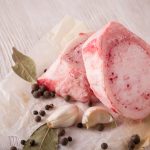Heirloom Produce
We’ve all heard the term ‘heirloom’ in context of food, and probably most often when referring to a type of tomato.
There are so many other fruits as well as vegetables that also fit into the same category. An ‘heirloom’ plant is is a plant or group of plants that was commonly grown during earlier periods in human history, but which is not used in modern large scale agriculture.
My interest on the topic was peaked after I picked up a local, organic heirloom cantaloupe yesterday at the farmer’s market.
I learned that there’s a lot of debate over the use of the word ‘heirloom’, including:
- Some place an age or date point on the plants (over 100 years old, others 50 years, and others prefer the date of 1945 which marks the end of World War II and roughly the beginning of widespread hybrid use by growers and seed companies).
- Others feel a true heirloom has to have been nurtured, selected, and handed down from one family member to another for many generations.
- Still others feel the plant literally needs to have been handed down from previous generations.
Interesting to note that there are no genetically modified tomatoes available for commercial or home use, it is generally agreed that no genetically modified organisms can be considered heirloom plants. Good to keep in mind when doing your shopping, then, that if you’re buying an ‘heirloom’ food, it’s apparently a sure thing not to have been genetically modified.
I’m definitely a fan, if for no other reason than it increases the already abundant veggie and fruit options we have at our disposal as part of Paleo!
Click here for a recipe for heirloom cantaloupe salsa that I’m making with the melon I bought yesterday!





